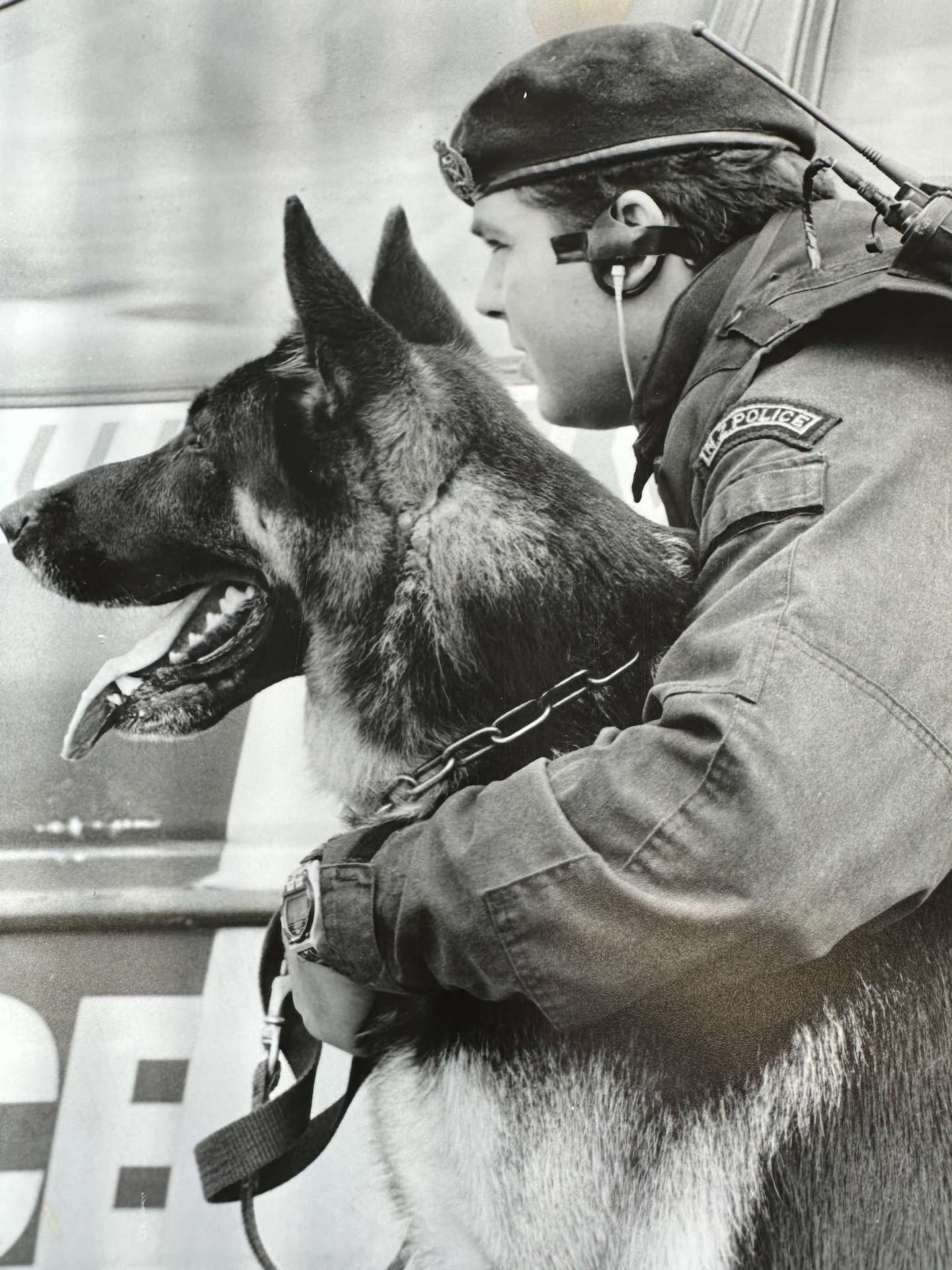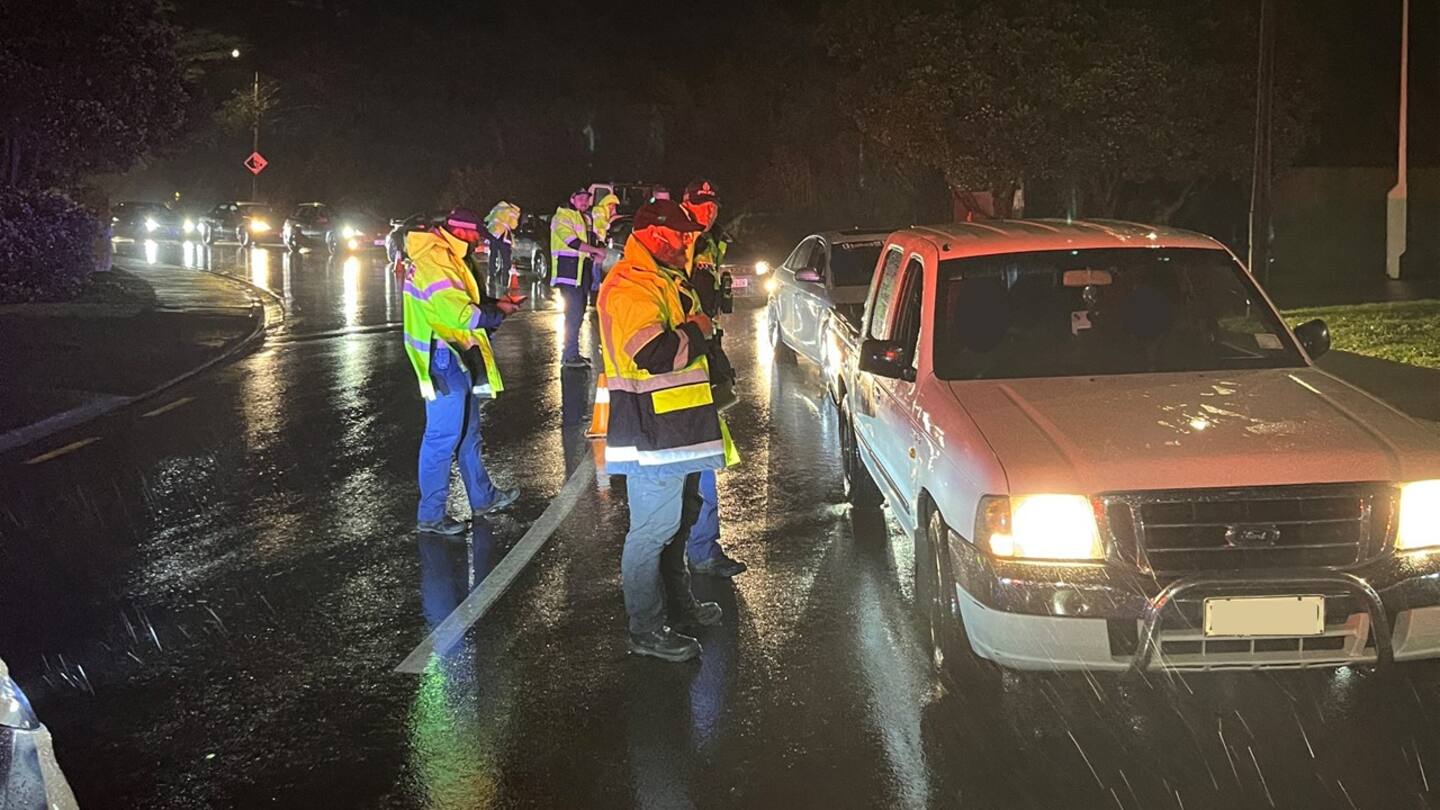Stopping criminals, and law enforcement, was top of the agenda when Police Minister Mark Mitchell met with his Australian counterparts at their biannual police conference in Melbourne yesterday.
The police ministers and commissioners from across Australia looked at a number of issues including gender-based violence, anti-money laundering and counter-terrorism financing reform and suppression of violent gang-related crime.
Mitchell has plenty of insight into policing, having served as a New Zealand police officer for 13 years - and he’s got the scars to prove it.
During his career Mitchell picked up several injuries including a stab wound while arresting an offender armed with a samurai sword, lung damage through smoke inhalation whilst recovering a mother and her son from a burning house and maxillofacial surgery on his eye socket to put his face back together with the use of steel plates and mesh. Some of these injuries contributed towards Mitchell’s exit from the Police.

Constable Mark Mitchell with his police dog. Photo / Supplied
It would be fair to say he has an understanding of the daily pressures, dangers and challenges faced by the men and women of our thin blue line.
Mitchell’s determined and no-nonsense approach to gangs, boy racers, retail crime and white-collar criminals resonates with mainstream New Zealand.
“I loved my policing career, the camaraderie, the challenge, and having spent most of my career on small specialist squads, the loyalty, trust and belief you have in your team members is special,” Mitchell told the Herald.
After working in a variety of odd jobs in his early life, Mitchell joined New Zealand Police in 1989 aged 20.
“I was raised in a family where public service was very important. Most of our family service through the generations has been defence force, police force or local and central government politics,” he said.
A good example of that is Mitchell’s paternal grandfather Frank Gill, who flew both Hurricanes and bombers in the RAF during the Battle of Britain and went on to become the MP for East Coast Bays, and Minister of Police and Defence.
“I remember how excited I was when I received my letter from police saying I would be a member of police recruit wing 116. Last week I was at the graduation of wing 337.
“My first year of policing was on the beat in the Auckland CBD. I loved it. It’s a great way to start to learn your craft, develop communication skills and identify issues in your own patch that have to be dealt with. I then moved into smaller specialist squads like the dog section and AOS and I really found my niche there.”

Constable Mark Mitchell with his police dog Czar. Photo / Supplied
“Resolving serious incidents without the use of force is always the optimal resolution for any officer,” Mitchell said.
“But sometimes the decisions and actions taken by offenders put police officers in a position where force is required to keep either attending police officers, the public, or sometimes even the offenders themselves, safe.”
Mitchell recalled an incident where all three of those criteria applied. He and his dog Czar were called to an incident where an offender with serious mental health issues had armed himself with a samurai sword and attempted to attack nursing staff at Rotorua Hospital.
During the arrest, both Mitchell and Czar were stabbed with the sword.
“I remember the thousands of cards that Czar received from people all over the country during his recovery and I think I received one which was from my Mum,” Mitchell laughs.
“The public do not like seeing our police dogs hurt. Czar was there for me every time I needed him, always trying to put himself between me and the threat. All he ever wanted in return was a scratch behind the ears, a swim at the beach and the big treat was a cheeseburger on night shift. He loved kids and school visits, but gang members not so much.”
“He was a hard, tough dog that was stabbed twice and assaulted many times. We had many trips to the vets including to the veterinary school at Massey University.
“Violent criminals and gang members came up against a no-nonsense, highly-trained police dog. The kids on school visits unlocked the big puppy that wanted to act like a goose and play”.
“He was my best mate and I still miss him.”
After leaving the police Mitchell worked for the interim government in Iraq for a number of years. He was embedded with the Iraqi police special tactics group as an adviser and trainer.
“It was a challenging policing environment dealing with terrorist groups, armed militias and religious death squads.”
On returning to New Zealand, Mitchell wanted to return to public service and embarked on a new career in politics.
Appointed as Police Minister by Prime Minister Christopher Luxon in the new coalition Government last year, Mitchell was very clear in laying out the incoming Government’s priorities to Police Commissioner Andrew Coster. Mitchell publicly released the letter of expectation to the commissioner so the public could clearly see the new direction of travel.
It was clear the minister and the Government wanted to see a crackdown on gangs, boy racers and violent retail crime.
“As Police Minister my role is to clearly set the Government’s priorities and then make sure I support them in being delivered,” Mitchell said.
“As the Minister of Police, Corrections and the Serious Fraud Office I have visibility across three agencies that all have a critically important role to play in terms of public safety. We have a big focus on increased co-ordination.
“We want to continue to ratchet up the pressure whether it be sophisticated white-collar crime through to violent retail crime”
Under Luxon and Mitchell there has been an obvious change in the way boy racers and gang members are being dealt with.

Wellington Police stop a boy racer convoy en route to Upper Hutt. Photo / NZ Police
There have been several police operations around the country targeting boy racer events which have seen multiple vehicles seized, multiple arrests and hundreds of infringement notices issued.
Gang runs are now being policed with more resources including the use of the Police Eagle helicopter.
It is a back to basics policing model that sees more police on the beat, a focus back on core policing and one which the public are responding well to.
“Although we are seeing some good early results from our outstanding police force, there is a lot further to go and it’s hard work but I know we will get there.”
Mitchell is often around the country holding public meetings.
He said gang members and gang leaders have started to turn up to some of these meetings.
“They are very aware of the new legislation due in November and often indicate that they want to make the change themselves,” Mitchell said.
“The problem is many of them are senior or older gang members and don’t have much influence over the younger ones.”
“I’ve been clear with them that if they have members of the gang who want to leave, especially those with children, we will find a way to help make that happen but talk is easy and proof is always in actions.
“I’ve been very clear that the easy ride is over, they are not above the law, and that they are dealing with an uncompromising government when it comes to public and police safety.”
Joseph Los’e is an award winning journalist and joined NZME in 2022 as Kaupapa Māori Editor. Los’e was a chief reporter, news director at the Sunday News newspaper covering crime, justice and sport. He was also editor of the NZ Truth and prior to joining NZME worked for urban Māori organisation Whānau Waipareira.
Take your Radio, Podcasts and Music with you









